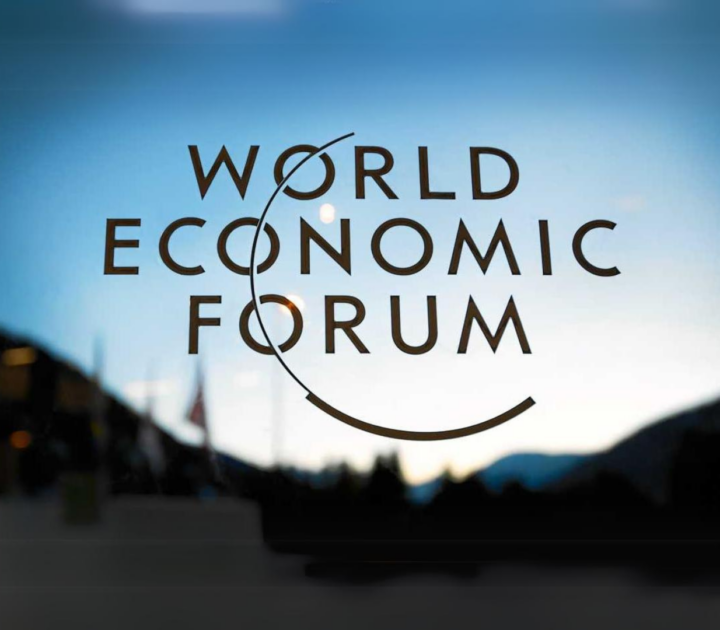
“Companies need to focus not on replacing, but on renewing their workforces, via re- and upskilling,” Bettina Schaller has said, during a panel discussion organized by IMD to celebrate the release of the 2020 World Talent Ranking, a wealth of data from 63 global economies collected strategically each year by IMD’s World Competitiveness Center.
European economies stood out this year with Switzerland, Denmark and Luxembourg — all renowned for their excellent education systems — in first, second and third places respectively.
Schaller, who is President of the World Employment Confederation and Head of Group Public Affairs at The Adecco Group, was speaking as part of a panel moderated by the WCC’s Director and IMD Professor of Finance, Arturo Bris. Joining them were Jason Hsu — Secretary General, Mt. Jade Science and Technology Association, Former Legislator, Taiwan, China — and Sertac Yeltekin — Founder and Managing Director at Zingforce Ventures, Singapore.
“We see that most labor-efficient and indeed labor-competitive markets exhibit a link between education and skilling, and labor market needs. It enables them to both flourish and go on to attract talent,” Schaller said.
Skills: learn them and then work them
“Many companies do not have the full visibility of their talent pool,” said Schaller, explaining how part of her work is to encourage organizations to ask what talent they have around them and then to determine how to approach that talent pool in a forward-thinking way.
“We call it ROI – the Return on Individuals. Too many think ‘I do not have skills in-house, let me buy or borrow.’ Instead, think about upskilling your own people. We saw this already before the crisis, but as we shift out of it, this approach becomes more and more important.”
She flagged up how the question of financing was often a sticking point to upskilling, however. “You cannot ask companies to up and reskill if you do not have a solution as not all companies have the financing mechanisms. Actually, it is more financially viable to upskill someone than to pay the costs of letting them go.”
Part of The Adecco Group’s work is to help companies tap into funds, navigating through the fog of where the financial responsibility for upskilling lies. The Group’s work is facilitated by the fact that it straddles the worlds of work and education.
Adamant that companies must employ more young people, Schaller also flagged how Switzerland, which placed 1st in the rankings, was the textbook example of how the interlink between the worlds of work and education allowed talent to “ferment and develop”.
In agreement about fostering existing talent was fellow panelist Sertac Yeltekin, Founder and Managing Director at Zingforce Ventures in Singapore — another example of a small country setting an example of success (it comes 9th in the 2020 ranking) thanks in part to a state-wide policy to let adults build their own curriculums and obtain the financing needed for upskilling and reskilling.
“What marks the difference is the number of opportunities created for talent to grow, whether the integration between the business and the education world or the finances put into it.
“Look at Turkey and Italy — there is lots of talent there, but the opportunities do not exist,” he said, citing labor inflexibility, regulation and low level of integration between corporations and higher education as contributors to lack of opportunity.
Economies that the panelists constantly came back to as best-in-class in their discussion were Switzerland, Finland, Singapore and Taiwan; in line with the 2020 ranking results.
Working from Barbados for a Dutch firm, say: is this the new norm?
Talent mobility is going to be a key issue, but not in terms of physical mobility. Instead, what matters is “how to tap into talent in places that are not in geographical proximity to you,” Yeltekin told the international audience .
“We were seeing the gig economy as a utilized method over the last few years – this idea of staying in one place and working in another. But it was a bit of an anomaly. There was a sense of ‘this is not going to touch me or my country’.”
COVID-19, he said, had brought down any barrier to remote working “tremendously”.
The questions remain of, for instance, how much to pay to people working remotely from a place where the cost of living is relatively low. Governments will struggle with such questions, and Schaller feared that, despite the urgency, there is a long way to go for the international community to get to grips with question marks over cross-border taxation and labor laws in the newly evolving paradigm.
Disruption everywhere — digital and beyond
The panel concluded that progress would be largely down to building an ecosystem: large companies, SMEs, governments and educational establishment must come together under initiatives such as the European Vocational Skills Week taking place this week in Brussels.
From education, to tech, to economic policy, and resource distribution he said, we need to rethink it all.
Research Information & Knowledge Hub for additional information on IMD publications
IMD World Competitiveness Center Report, 8 April 2024
in VoxEU 12 March 2024

in I by IMD 6 February 2024

in I by IMD 6 February 2024


in I by IMD 19 January 2024


in I by IMD 16 January 2024

in I by IMD 9 January 2024

IMD World Competitiveness Center Report, 8 April 2024
Research Information & Knowledge Hub for additional information on IMD publications
in VoxEU 12 March 2024
Research Information & Knowledge Hub for additional information on IMD publications
Research Information & Knowledge Hub for additional information on IMD publications
in I by IMD 6 February 2024
Research Information & Knowledge Hub for additional information on IMD publications
in I by IMD 6 February 2024
Research Information & Knowledge Hub for additional information on IMD publications
Research Information & Knowledge Hub for additional information on IMD publications
in I by IMD 19 January 2024
Research Information & Knowledge Hub for additional information on IMD publications
Research Information & Knowledge Hub for additional information on IMD publications
in I by IMD 16 January 2024
Research Information & Knowledge Hub for additional information on IMD publications
in I by IMD 9 January 2024
Research Information & Knowledge Hub for additional information on IMD publications
